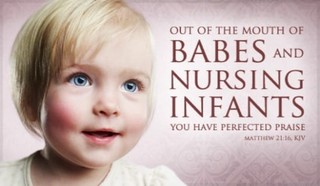- Recent Translations
- All Translations
Matthew 21
Share
Settings
Matthew 21 Commentary
Chapter 21
Christ enters Jerusalem. (1-11) He drives out those who profaned the temple. (12-17) The barren fig-tree cursed. (18-22) Jesus' discourse in the temple. (23-27) The parable of the two sons. (28-32) The parable of the wicked husbandmen. (33-46)
Verses 1-11 This coming of Christ was described by the prophet Zechariah, ( Zechariah 9:9 ) . When Christ would appear in his glory, it is in his meekness, not in his majesty, in mercy to work salvation. As meekness and outward poverty were fully seen in Zion's King, and marked his triumphal entrance to Jerusalem, how wrong covetousness, ambition, and the pride of life must be in Zion's citizens! They brought the ass, but Jesus did not use it without the owner's consent. The trappings were such as came to hand. We must not think the clothes on our backs too dear to part with for the service of Christ. The chief priests and the elders afterwards joined with the multitude that abused him upon the cross; but none of them joined the multitude that did him honour. Those that take Christ for their King, must lay their all under his feet. Hosanna signifies, Save now, we beseech thee! Blessed is he that cometh in the name of the Lord! But of how little value is the applause of the people! The changing multitude join the cry of the day, whether it be Hosanna, or Crucify him. Multitudes often seem to approve the gospel, but few become consistent disciples. When Jesus was come into Jerusalem all the city was moved; some perhaps were moved with joy, who waited for the Consolation of Israel; others, of the Pharisees, were moved with envy. So various are the motions in the minds of men upon the approach of Christ's kingdom.
Verses 12-17 Christ found some of the courts of the temple turned into a market for cattle and things used in the sacrifices, and partly occupied by the money-changers. Our Lord drove them from the place, as he had done at his entering upon his ministry, ( John 2:13-17 ) . His works testified of him more than the hosannas; and his healing in the temple was the fulfilling the promise, that the glory of the latter house should be greater than the glory of the former. If Christ came now into many parts of his visible church, how many secret evils he would discover and cleanse! And how many things daily practised under the cloak of religion, would he show to be more suitable to a den of thieves than to a house of prayer!
Verses 18-22 This cursing of the barren fig-tree represents the state of hypocrites in general, and so teaches us that Christ looks for the power of religion in those who profess it, and the savour of it from those that have the show of it. His just expectations from flourishing professors are often disappointed; he comes to many, seeking fruit, and finds leaves only. A false profession commonly withers in this world, and it is the effect of Christ's curse. The fig-tree that had no fruit, soon lost its leaves. This represents the state of the nation and people of the Jews in particular. Our Lord Jesus found among them nothing but leaves. And after they rejected Christ, blindness and hardness grew upon them, till they were undone, and their place and nation rooted up. The Lord was righteous in it. Let us greatly fear the doom denounced on the barren fig-tree.
Verses 23-27 As our Lord now openly appeared as the Messiah, the chief priests and scribes were much offended, especially because he exposed and removed the abuses they encouraged. Our Lord asked what they thought of John's ministry and baptism. Many are more afraid of the shame of lying than of the sin, and therefore scruple not to speak what they know to be false, as to their own thoughts, affections, and intentions, or their remembering and forgetting. Our Lord refused to answer their inquiry. It is best to shun needless disputes with wicked opposers.
Verses 28-32 Parables which give reproof, speak plainly to the offenders, and judge them out of their own mouths. The parable of the two sons sent to work in the vineyard, is to show that those who knew not John's baptism to be of God, were shamed by those who knew it, and owned it. The whole human race are like children whom the Lord has brought up, but they have rebelled against him, only some are more plausible in their disobedience than others. And it often happens, that the daring rebel is brought to repentance and becomes the Lord's servant, while the formalist grows hardened in pride and enmity.
Verses 33-46 This parable plainly sets forth the sin and ruin of the Jewish nation; and what is spoken to convict them, is spoken to caution all that enjoy the privileges of the outward church. As men treat God's people, they would treat Christ himself, if he were with them. How can we, if faithful to his cause, expect a favourable reception from a wicked world, or from ungodly professors of Christianity! And let us ask ourselves, whether we who have the vineyard and all its advantages, render fruits in due season, as a people, as a family, or as separate persons. Our Saviour, in his question, declares that the Lord of the vineyard will come, and when he comes he will surely destroy the wicked. The chief priests and the elders were the builders, and they would not admit his doctrine or laws; they threw him aside as a despised stone. But he who was rejected by the Jews, was embraced by the Gentiles. Christ knows who will bring forth gospel fruits in the use of gospel means. The unbelief of sinners will be their ruin. But God has many ways of restraining the remainders of wrath, as he has of making that which breaks out redound to his praise. May Christ become more and more precious to our souls, as the firm Foundation and Cornerstone of his church. May we be willing to follow him, though despised and hated for his sake.


